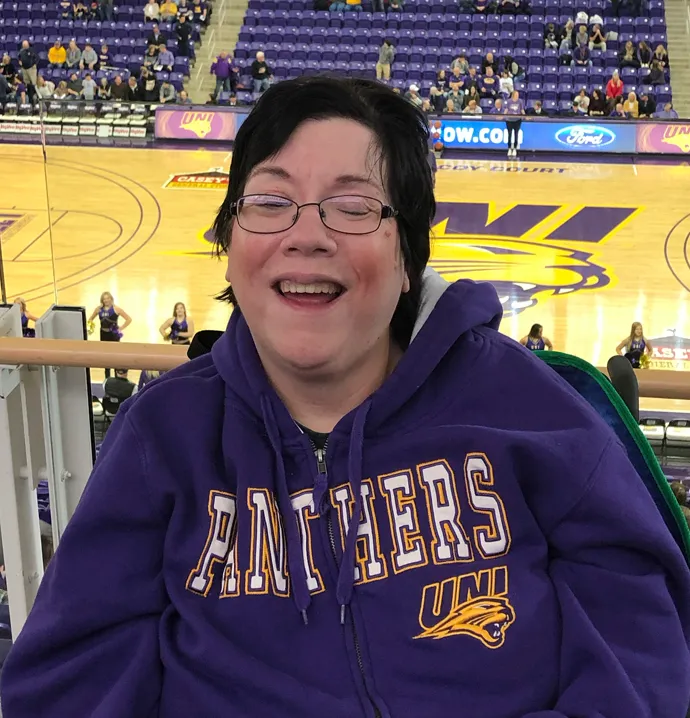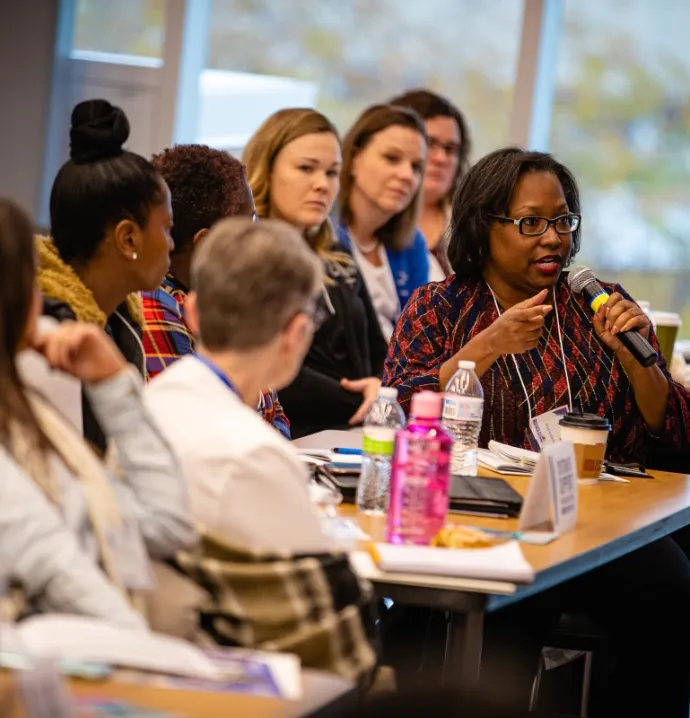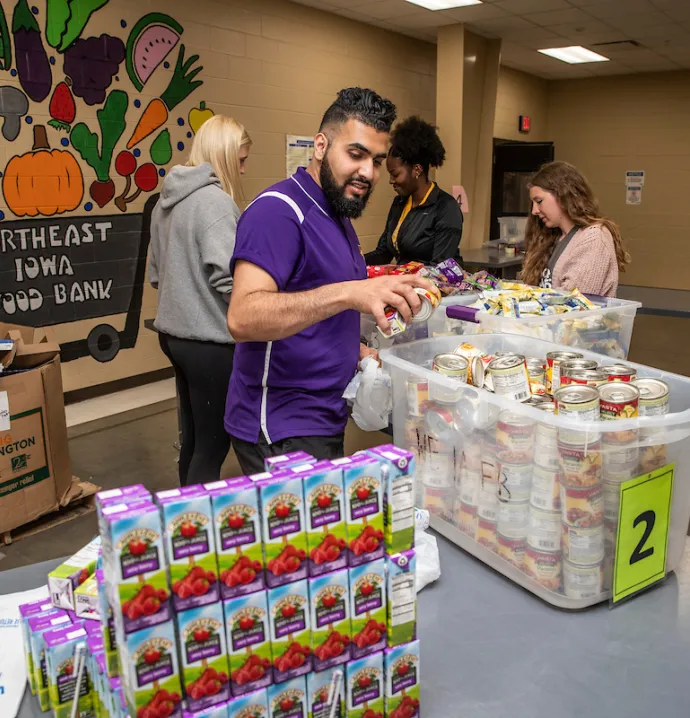Even in pandemic, food service workers there for students
Even in pandemic, food service workers there for students
The outbreak of COVID-19 has shuttered most of the University of Northern Iowa’s campus services, but a small, dedicated group of dining services workers have continued to work through the pandemic to provide three meals a day to the tiny population of students still living on campus.
The workers have been a lifeline for students who had nowhere else to go - not only providing meals but a social connection. Students have the option to pick up several meals at once, but many choose not to, electing instead to come back for dinner and have another chance to connect with the staff, said Carol Fletcher, associate director of dining.
And the connection works both ways.
“I feel we have really helped each other cope with this,” said Shelly Grant, food service supervisor. “They all seem very happy to have a place to come and get something to eat and have some conversations. When they leave here from getting their lunches they all say ‘see you at dinner.’ I feel very blessed to work at a place that cares so much about our customers and the well-being of each one of them.”
The emergence of this critical role the dining service has played in students’ lives was part of the initial plan for the COVID-19 response.
“One of the things we focused on was trying to balance the mental health side of things and make students feel like people are checking on them,” Fletcher said. “We felt it was a nice way to have them have contact in a healthy way in an environment that’s as sanitary as possible.”
Safety and sanitation is the top priority. The students swipe their own ID card instead of interacting with a cashier. Immediately upon entering the dining center, they’re asked to wash their hands. Then, they grab a tray and a carry-out container - all the food is now served to go.
From there, the students are directed by lines on the floor to limit cross traffic. The floor is also marked with signs to indicate safe, six-feet distances. Instead of the usual, buffet-style service, food is now served directly into the take-out containers by the staff.
But some things don’t change. UNI has been named at the top of the annual Best College Food in Iowa by Niche.com for four of the past five years, and the pandemic has not dampened the cooks’ efforts to live up to that standard.
“The quality of the food served at UNI is still overwhelmingly delicious,” said Diane Iehl, cook I.
The Piazza dining center has temporarily scaled down from the popular, bustling food court that serves about 3,000 meals a day to hungry UNI students. The staff now serves around 80 meals to about 40 students every day. But their commitment to students is unchanged.
“Our dining team is dedicated to helping students succeed and takes great pride in supporting and caring for them,” said Janet Despard, director of dining administration. “They remain steadfast and committed to serving the Panther community, even in a global crisis. They are amazing professionals and I am incredibly proud of them.”
In the middle of a pandemic, the dining staff has connected with these students, who they know by name, in a way that goes beyond meals.
“We believe that we are not only providing food for these students but also an opportunity for them to have daily interactions with others outside of their living arrangements,” said Michael Weiglen, Piazza unit manager. “These students are extremely happy and grateful when they come in for their meals. The staff have also gotten to know them by name, know what they like and connect with each one of them on a personal level. They ask them how they are doing personally and with class and provide hope that things will eventually get better.”
Everyone is ready for the campus to return to normal.
“The whole staff is eager for students to return,” Fletcher said. “We love being a part of students’ success at UNI. We feel like we contribute to their success by providing healthy, nutritious food as well as community for students that live on campus.”




